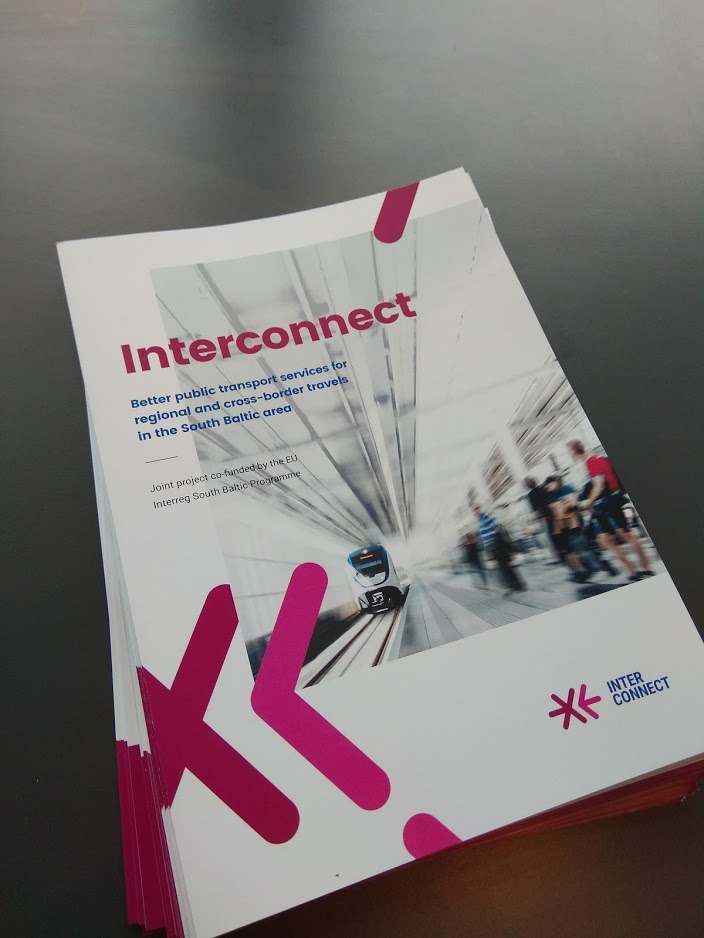We present here the article from the Interreg South Baltic Programme website prepare for the 30th anniversary of the Interreg.
In 2020 we celebrate 30 years of Interreg. On this occasion, we asked representatives of the Interreg South Baltic Programme projects to share their experiences about the Interreg funds and the cross-border cooperation.
Frede Danborg, the International Coordinator in Guldborgsund Municipality, Denmark, and the project manager for the Interconnect project shares his experience from the perspective of the project’s partner in INTERCONNECT project. Let’s talk about Interreg!
What impact has Interconnect had on Guldborgsund Municipality?
Interconnect has both worked to improve public transport between Rostock, Germany and Guldborgsund Municipality, Denmark.
Interconnect has supported a joint local development and provided exciting opportunities to travel across the Baltic Sea between the two project partners.
Interconnect made it easier to buy the InterCombi ticket online. This is a joint ticket that covers both buses and ferries and makes it easier to travel across the Baltic Sea.
Interconnect has assisted promoting the summer bus between Gedser and Marielyst Tourism Resort and is especially aimed at international tourists crossing the Baltic Sea.
Interconnect has prepared a catalogue of new mobility solutions for the residents of our rural areas so that it will be easier to travel to our main city Nykøbing, which is on the travel route to Rostock and Berlin.
Interconnect has completed more than 10 exchanges within education, culture and tourism as well as business. It has involved more than 150 people from Guldborgsund who have visited Rostock and more than 150 people from Rostock who have visited Guldborgsund.
I believe that this cooperation between local associations, institutions and authorities is an important part of a transport project.
Why is it necessary for International Cooperation to achieve those results?
When it comes to cross-border public transport and common local development as in Interconnect, then it can only happen through international cooperation.
The cooperation with Rostock regarding better transport connections and cooperation for joint development is high on our agenda both in Rostock and here in Guldborgsund Municipality.
But still, the international project is needed to make it actually happen! A joint project is a signal and a message to our organisations and to the surroundings that we prioritise these activities. And it is a starting shoot from our management to implement this cooperation.
What role do you think Interreg projects should have in Denmark and Europe in the coming years?
Interreg projects should develop knowledge and relationships between neighbouring countries and neighbouring regions. And they must involve both local and regional authorities, institutions and associations.
Interreg projects should be broad and reflect local and regional development agendas.
They do not have to be research projects or follow narrow specific business branches or professional themes.
For such purposes, you have already in place the Structural Funds, Horizon 2020 and the thematic programmes based in Brussels.
As a very concrete proposal, Interreg projects could provide opportunities for cooperation in the field of health. Not to develop cancer treatment or COVID-19 vaccine, but so that health and care staff in e.g. municipalities could develop new forms of work and methods within public health and prevention and elderly care.
Among all local and regional authorities, these tasks require great efforts and large budgets. I believe that international cooperation in these areas can change a lot.
What European challenges are particularly important to address in international cooperation?
There are many common European challenges that need international cooperation. Therefore, it is good that the EU has a very wide range of different development and support programmes.
You can find the interview here:
